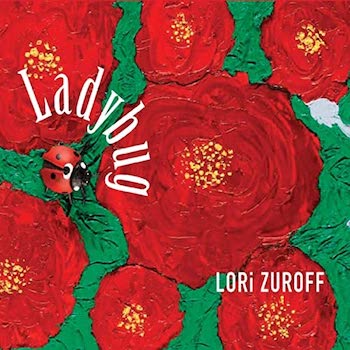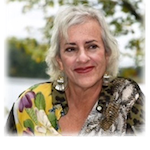The soothing, easygoing sound of Boston-area vocalist Lori Zuroff ‘s debut album is perfect for our uncertain times.

What drew me to Ella Fitzgerald, when I first fell in love with jazz singing, wasn’t the high-flying live performances, with chorus after chorus of scatting on “Mack the Knife” or Ellington’s “Diminuendo in Blue.” Rather, it was that alternately sweet and husky voice staying true to the melody and lyrics with her own impeccable phrasing, as she did on her many “songbook” recordings of music by the greats — Berlin, Gershwin, Ellington, Porter, Rodgers & Hart, Arlen, Kern, Mercer.
There’s never been a shortage of vocal derring-do in jazz vocalist releases, and there’s no doubt that virtuosic wordless singing inspired by instrumental soloists has a certain wow-factor. But sometimes I just want to sit back and hear the words and music as the composers wrote them, through the voice of someone who’s inhabited them, maybe over many years of performing them in bars and clubs and restaurants, and wherever else we jazz vocalists ply our trade.
That’s the approach Boston-area vocalist Lori Zuroff takes on her debut album, Ladybug. Zuroff (whom I met at a 2018 summer workshop on jazz and Brazilian music) has sung everything from rock and roots to R & B, blues, and jazz over a 25-year career. But for her first album, she chose to record a jazz “songbook” of her own — a set of long-loved standards that reach back to the earliest years of the Tin Pan Alley and show tunes that formed the Great American Songbook.
The album opens with a song that’s over a century old — “You Made Me Love You,” which Al Jolson debuted in 1913. Zuroff starts off the easy swinging feel over fingersnaps and Bill McCormack’s bass; then Molly Flannery’s piano, Miki Matsuki’s drums, and Bill Vint’s tenor sax kick in. The song gives us our first taste of Zuroff’s luscious Bonnie Raitt-like timbre.
That warm, husky voice and the band’s sensitive accompaniment and soloing are especially effective on ballads like “When Sunny Gets Blue,” “The Nearness of You,” and “In a Sentimental Mood”; Flannery’s tinkling keys that reflect the “rain begins to fall” lyric of “Sunny” and the haunting piano figure that underpins the Ellington nicely set the mood. I welcomed Zuroff taking more liberties with melody and phrasing in her sassy, bluesy version of “Honeysuckle Rose” (more of that, please!). A memorable Latin-flavored arrangement of “You Don’t Know What Love Is” features terrific playing by Vint on both solo and ending vamp. Closing the set is a meditative, moving voice and piano duet on the gorgeous 1934 ballad “For All We Know.” Its “seize the day” message — “So love me tonight … tomorrow may never come, for all we know” — is perfect for our uncertain times. And so is the soothing, easygoing sound of Lori Zuroff’s Ladybug.
— Evelyn Rosenthal
